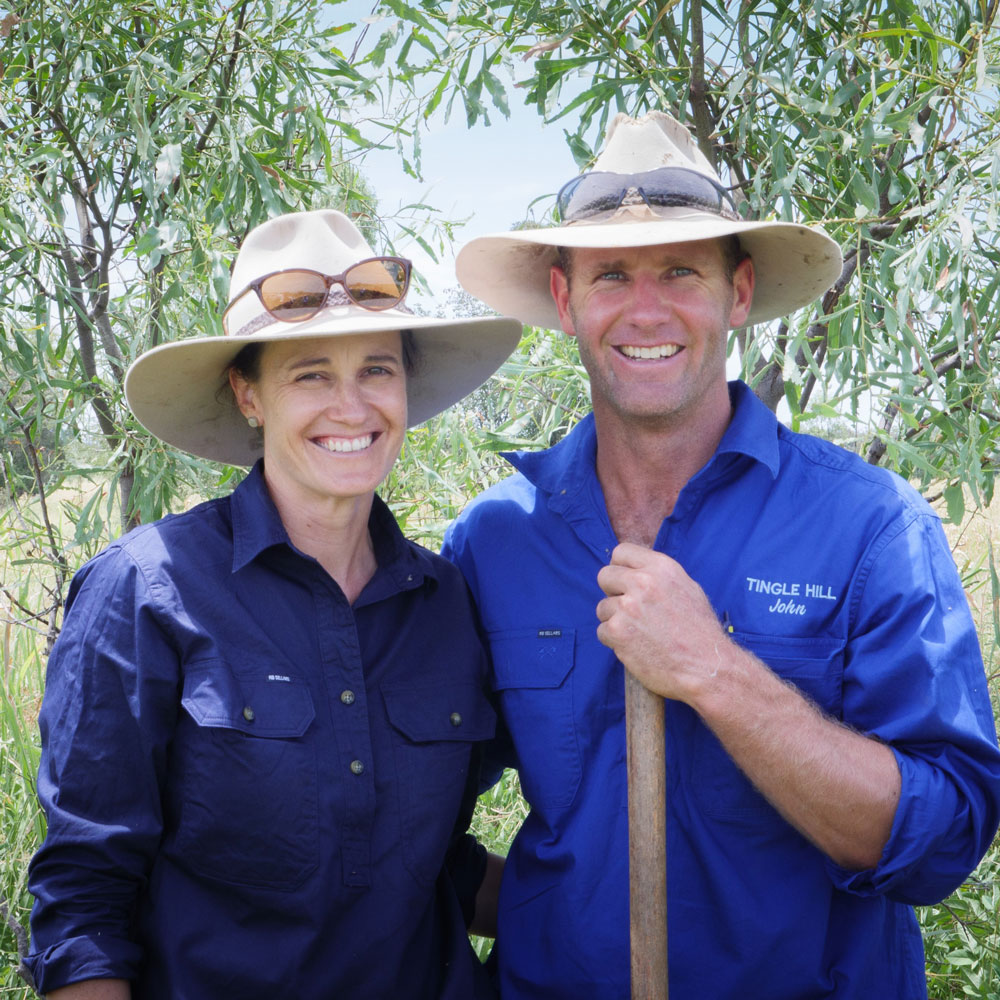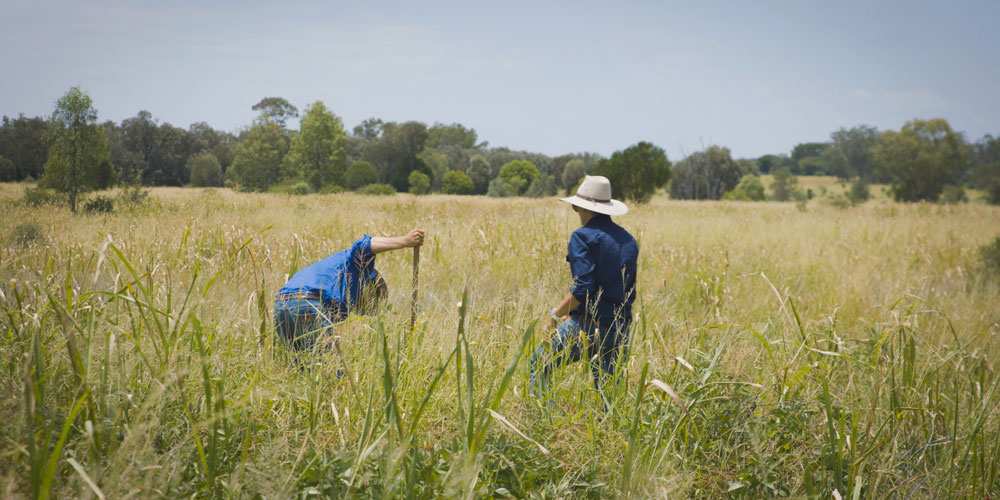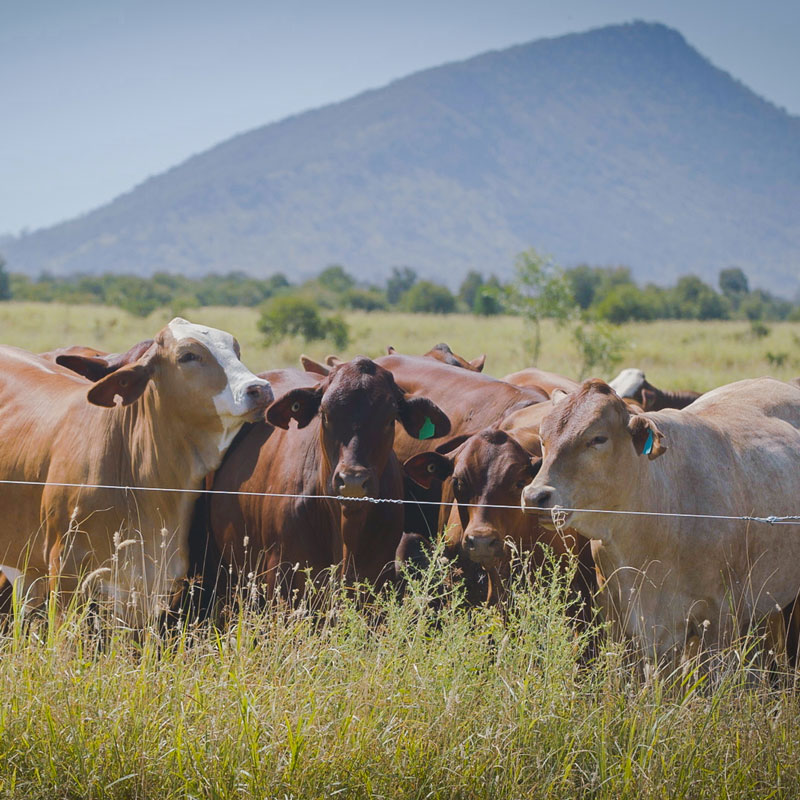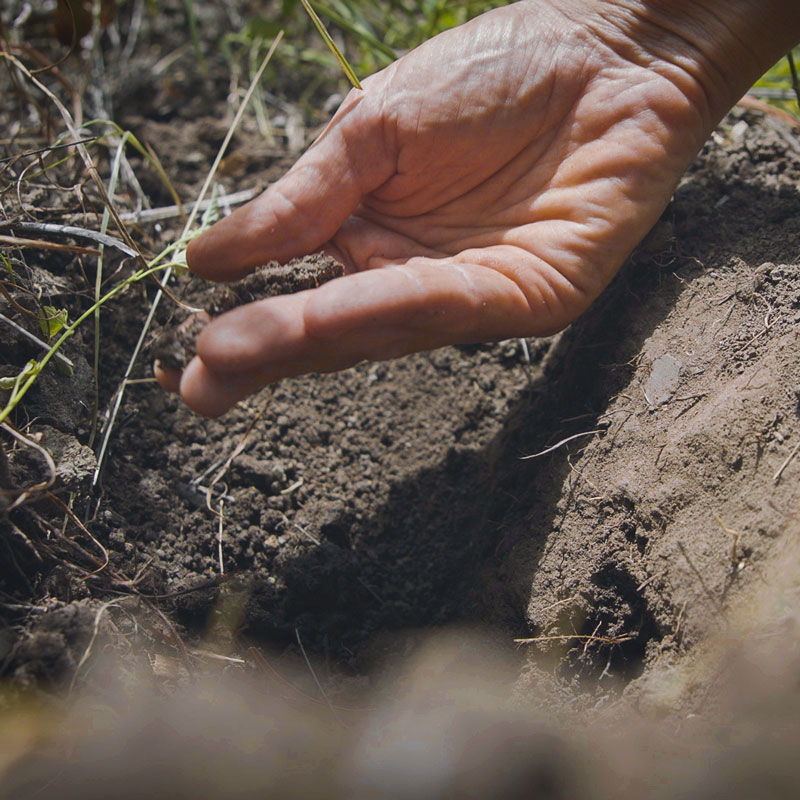John & Jess Bidgood
TINGLE HILL, Baralaba
How regenerative agriculture practices allowed John and Jess Bidgood to achieve their business and family goals ten years ahead of time.
Tingle Hill at a glance
Location: Baralaba, Central Queensland
Property size: Tingle Hill – 630ha, Mount Cooper – 1341ha, Round the Bend 559ha
Type of operation: Backgrounding and finishing beef cattle
Introduction
When John and Jess Bidgood took over 630ha Baralaba-district holding ‘Tingle Hill’ from John’s family a decade ago, they did so with an aim to grass-finish steers for the organic market.
However, to achieve their goal of making the property their primary source of income, a different approach to operating the business was required.
The solution was found in 2016, when the couple discovered Resource Consulting Services (RCS) and the transformational change regenerative agriculture could bring to the way they managed their Brigalow country.
Based on their RCS learnings, John and Jess began to implement time-controlled grazing straight away and they were enthusiastic to extend their practice change. So, when an opportunity to join Project Pioneer was presented a year later, they jumped
at it.
“We started Project Pioneer at the start of 2017, and it had a huge impact on our business,” Jess said.
“It showed us how to create a clear vision for our business and family which has grown our profitability while achieving our ecological goals at the same time. This included improving ground cover, biodiversity of plant species and soil health.
“The Project really suited where we were at that time.”
Implementing regenerative land management over the last five years has not only made ‘Tingle Hill’ more productive and profitable, it has also allowed John and Jess to fast-track expansion of their business. Within two years of commencing Project Pioneer, they purchased Mount Cooper (1,341ha), 35 kilometres to the east of Tingle-Hill and leased Round the Bend (559 ha), also in the Baralaba area.
Focus on soil and pasture
One of the Bidgoods’ highest priorities on ‘Tingle Hill’ was nurturing soil health to achieve a more diverse ecosystem and higher-quality pasture. Traditionally, the property had been operated over four paddocks, two of which fronted the Dawson River and suffered erosion, and had areas of overgrazing and depletion. In the other two paddocks, access to water was an issue which led to poor utilisation of pasture and the formation of clay pans.
During their time as part of Project Pioneer, the Bidgoods invested in 11 kilometres of polythene pipe, and the same number of troughs, to improve water infrastructure and to ensure stock were using the feed available to them. With the same goal in mind, they also subdivided the four large paddocks into 34 by erecting 26km of electric fence.
“Time-controlled grazing has allowed us to gain control of the stock on our properties. It creates a more even utilisation of feed and gives us the ability to plan ahead easily to ensure we are matching our stocking rate to our current carrying capacity,”
Jess said.
The shift in land management which was borne from their participation in Project Pioneer now sees the Bidgoods meticulously assess the species and growth cycle of vegetation across their paddocks.
“By paying attention to pasture health and growth, we can continually adjust our stocking rate to match the quality and quantity of feed available, this ensures our pasture is left ‘rain ready’ to make the most of any moisture we receive,” John said.
“Even through a recent extended dry, which lasted 12 months, we were able to maintain ground cover the whole way through and our pasture was in a good position to take advantage of any rain that did come at the start of the growing season, which just put us that much further ahead of the market.”
John and Jess estimate they had 65 per cent ground cover at Tingle Hill when they commenced Project Pioneer, however this now consistently sits at 80 to 85pc. At Mount Cooper ground cover was around 50pc, however, this has improved to 65 to 70pc, while the growth in diversity of plant species has been exciting.
“The seed is already there, it just needed the right grazing management to appear,” John said.
A more holistic approach to management has also heightened the Bidgood’s awareness of the performance of their enterprise as a grazing business.
“I used to think I was good at keeping books but all I was doing was my tax accounting,” Jess said.
“Now I know our economic position and our cash flow position and where we’re heading. We have control over that. The fact that we’re cash flow positive and we’re profitable every year, regardless of the season, and we’re hitting our goals of being able to achieve what we want on farm and off farm in terms of property development and investment for our future, is amazing.”
Changes beyond the paddock
At the real heart of what John and Jess wanted to achieve was the desire to make enough on-farm income to strip away the need for them to rely on external streams of income, and to focus their time on beef production and their young family.
“We were trying to find a way we could make this our purpose, our income, our livelihood. We wanted to be profitable while achieving ecological goals including increasing ground cover, biodiversity of species and improving soil health,” Jess said.
“Project Pioneer made us realise we had this vision and then it was a matter of chunking it down into goals. We wanted John to be on-farm fulltime and we achieved that, and I have scaled back my off-farm work considerably. Then we set really big goals which included owning 1000 head and buying another property and we’ve recently achieved them too. Now it’s a matter of us reassessing and setting goals for the next stage while, at the same time celebrating how far we have come.”
While the last few years of their change to regenerative management have been full of intense shifts for the Bidgoods, they say all changes have set them up for life, especially the adjustments to their thinking about business.
“It’s the mental shift into understanding that we create our own destiny. We have absolute control over what we’re doing and that realisation has been incredible,” Jess said.
“We now have a clear vision that is in sync with our purpose, passions and our family. We can set ‘big stretch goals’ that we can measure and constantly reassess to look for ways within the business to create a life that we don’t want a holiday from and that we absolutely love.”
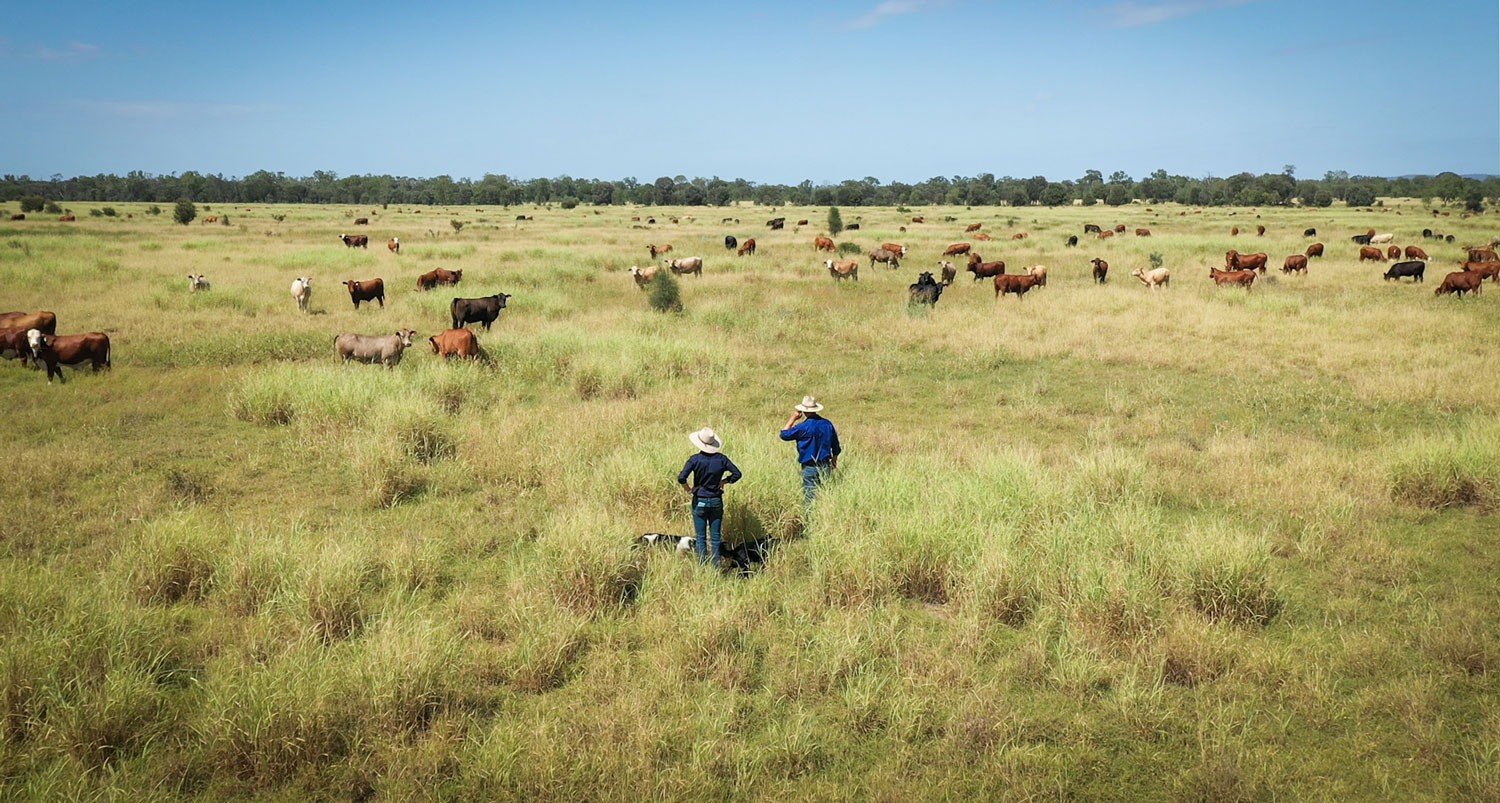
GET IN TOUCH
Want to talk more about Project Pioneer, or how RCS can help you deliver industry-leading results?




Project Pioneer is funded by the partnership between the Australian Government’s Reef Trust and the Great Barrier Reef Foundation. The project is delivered by RCS with support from WWF, Maia Technology, Farm Map 4D and CQUniversity.

